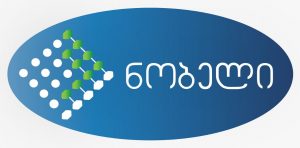Mental Arithmetic
What is mental arithmetic?
The methodology was specially developed to automatically develop the frontal lobe of both hemispheres of the brain (the so-called “prefrontal cortex”). It is very rare that an exercise “forces” the neurons of both hemispheres of the brain to work actively at the same time. Mental arithmetic is one of the most effective ways to do this.
Mental arithmetic contributes to the child’s mental development in the following ways:
- Analytical, logical and systematic thinking
- Perception of causal relationships, reasoning
- Communicate fluently (speaking and writing)
- Quick memory (the ability to simultaneously manipulate several concepts in the mind and perceive them together)
- Creativity and imagination
- Intuition and situational perception
The course is designed for children aged 4 to 15 years
Value
•Working day at the workplace - 120 GEL
• Working day groups online - 120 GEL
• Weekend groups - 140 GEL
The tuition fee will be calculated for 1 month. There is one 90-minute lesson per week. 4 lessons held in a month are considered a full academic month. If he has 5 lessons in a calendar month, the fee is not added
Addresses
Saburtalo - Sh.Nutsubidze #121
Gldani - Gobronidze Street #1
Duration
Full course duration: 3.5 years
Discounts
-10% - two cousins
-20% - three or more cousins
Course Syllabus
The course consists of 9 levels. Completing each level advances Bashvi’s mental development.
- 1 level
- Training exercises for mastering the technique of working on an abacus. Score within 100 on the abacus.
- Simple operations on the abacus (without using a logical formula, when the coils given on the stick are enough to perform an arithmetic operation).
- Mental arithmetic within 100 with simple operations on one-digit and even-digit (11, 22, 33, etc.) two-digit numbers.
- Methodologically developed using concepts of different complexity (little friends) with complex actions to calculate on the abacus within 100, which involves using logical formulas to perform such an exercise when there are not enough coils on the stick.
- Recognition of numbers with imaginary cards up to 100, at which time any number is studied and memorized in the form of a picture made up of coils.
- 2 level
- three digit numbers.
- The concept of great friends (DM).
- Calculation of three-digit numbers on the abacus with simple operations.
- Mental arithmetic with simple operations on one- and two-digit numbers.
- Double Friends (OM)
- Account on the abacus: in complex operations using small, large and double friends.
- Mental arithmetic: complex operations on single-digit numbers using small and large friends.
- Recognizing three-digit numbers with imaginary cards.
- Standards: 2, 3, 4, 5, 6, 7, 8, 9. Adding and subtracting numbers.
- 3 level
- Abacus score: complex operations on 1, 2 and 3 digit numbers using double friends
- Mental arithmetic on 1- and 2-digit numbers using double and big friends
- Mental arithmetic: with simple operations on three-digit numbers
- Standards: 10, 20, 30, 40, 50,100
- 4 level
- Multiplying two-digit numbers by one-digit numbers on the abacus
- Multiplying tens by single digits
- Students perform examples of any difficulty on the abacus with 1, 2, and 3-digit numbers mentally, with complex operations on both 2- and 3-digit numbers.
- 5 level
- Dividing 3-digit numbers by 1-digit numbers on the abacus
- Dividing remainders and multiplying 3-digit numbers by 1-digit numbers
- Students can mentally multiply 2-digit numbers by 1-digit numbers
- They start adding and subtracting 4-digit numbers with complex operations on the abacus
- 6 level
- Mentally both multiplication and division of 3-digit numbers by 1-digit numbers
- Using an abacus, they will learn how to divide 3-digit numbers by 2-digit numbers
- Multiplying 2-digit numbers by 2-digit numbers
- 7 level
- Multiplying 3-digit numbers by 2-digit numbers on the abacus
- Dividing 4-digit numbers by 2-digit numbers
- Mentally perform both 2-digit multiplication by 2-digit and 3-digit division by 2-digit
- Performing residual divisions according to topics covered
- 8 level
- Multiplying 4-digit numbers by 1-digit numbers on the abacus
- Percentages
- 9 level
- Multiplying 4-digit numbers by 2-digit numbers on the abacus
- Dividing 4-digit numbers by 3-digit numbers
- Multiply and divide by the square root of a number
